The code P0316 is associated with an engine misfire detected during the first 1,000 revolutions following the engine start. Essentially, this code signals that the vehicle’s onboard diagnostic system has picked up on a misfire occurring very shortly after the engine is ignited. This initial period is crucial, as it’s when the engine undergoes the transition from a cold state to its regular operational temperature, making it more susceptible to irregularities.
More about the code
When P0316 is flagged, it often hints at issues that particularly affect the engine’s performance during startup. Causes can range from faulty spark plugs, defective fuel injectors, to problems with the ignition coil or even issues within the engine’s mechanical components. Identifying the root cause promptly is essential, not only for smooth vehicle operation but also to prevent potential long-term damage to the engine or the catalytic converter.
The Common Causes of Code P0316, What They Are?
An engine misfire occurring within the first 1,000 revolutions after startup can arise from various factors that impact the engine’s early-stage operation. Here are the prevalent causes:
- Faulty Spark Plugs. If spark plugs are worn out or compromised, they might not provide the necessary spark to ignite the fuel, leading to misfires, especially during the engine’s initial operations.
- Defective Ignition Coils. Ignition coils transform the battery’s low voltage to the high voltage needed to produce a spark in the spark plugs. A malfunctioning coil can hinder this process, resulting in misfires.
- Compromised Fuel Injectors. If a fuel injector is clogged or malfunctioning, it can prevent the correct amount of fuel from reaching the combustion chamber, leading to imperfect combustion and subsequent misfires.
- Fuel Quality Issues. Contaminated or low-quality fuel can inhibit optimal combustion, making the engine more prone to misfires during its early rotations.
- Faulty Crankshaft or Camshaft Position Sensors. These sensors monitor the positions of the crankshaft and camshaft, which are vital for maintaining accurate engine timing. If either sensor is malfunctioning, it can throw off the engine’s timing and lead to misfires.
- Timing Chain/Belt Problems. If the engine’s timing components, like the timing chain or belt, are misaligned or worn out, they can affect the synchronization between the crankshaft and camshaft, which can result in misfires.
- Mechanical Engine Issues. Less commonly, physical problems within the engine, such as low compression in a cylinder due to worn piston rings or damaged cylinder walls, can cause misfires, especially in the startup phase.
Related DTCs to P0316
P0300, P0301-P0312, P0320, P0335 – P0339, P0340 – P0349
FAQs
How much does it cost to fix the code P0316?
On average, for more common issues like replacing spark plugs or ignition coils, you might spend between $100 and $500. However, for more extensive repairs or if multiple problems are found, the cost can be significantly higher. Here’s a general breakdown of potential expenses:
- Spark Plugs Replacement. This is often one of the most straightforward and cost-effective fixes. Depending on the vehicle model and spark plug type, this could range from $10 to $30 per spark plug for parts. Labor might add another $50 to $150, depending on how many plugs need replacement and the accessibility of the engine.
- Ignition Coils. These can cost between $50 and $300 each, depending on the vehicle. Labor charges might range from $50 to $200.
- Fuel Injectors. If one injector needs to be replaced, the part itself may cost between $50 and $300, while labor can add another $50 to $200.
- Fuel Filter or Pump. If fuel contamination is suspected, a fuel filter might be replaced for $50 to $150 for parts and labor. A fuel pump replacement can be more costly, ranging from $200 to $1,000 including labor.
- Crankshaft or Camshaft Position Sensor. Typically, these sensors might cost anywhere from $50 to $250 each, with labor adding another $50 to $150.
- Timing Chain/Belt Replacement. This is a more extensive repair, possibly costing between $300 to $1,500 or more, based on the complexity of the job and vehicle model.
- Diagnostic Fee. Most repair shops charge an initial fee, often between $50 to $100, to identify the specific cause of the problem. Some might integrate this into the total repair cost if you choose to proceed with them.
Can I continue driving with the P0316 code?
While you might be able to drive the vehicle for short distances, such as to a nearby repair shop, prolonged driving with a P0316 code is not advisable. It is because of several reasons: reduced performance and efficiency, the potential for further damage, safety concerns, higher emissions and the probability of worsening the problem.
Will fuel injector cleaner fix a misfire?
While fuel injector cleaner can be beneficial for minor clogs and to maintain injector health, it’s not a guaranteed fix for all misfires. If you’re experiencing a misfire and suspect fuel injectors, using a cleaner might be a good first step. If the misfire persists, a comprehensive diagnosis is necessary to pinpoint and address the underlying issue.
Can a vacuum leak cause a misfire?
A vacuum leak can indeed cause a misfire. However, it’s worth noting that while a vacuum leak can cause a misfire, not all misfires are due to vacuum leaks. Misfires can have various root causes, including issues with spark plugs, ignition coils, fuel supply, compression, and more.
We do an efforts to find, research and recommend the best products. So, we may receive commissions from purchases that you make after following the links in our product reviews.


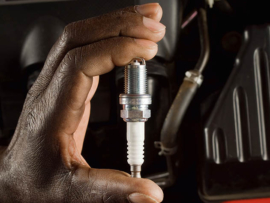
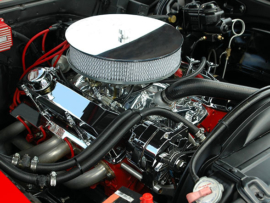
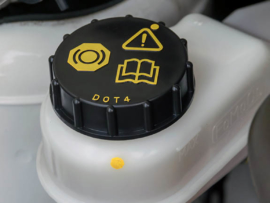

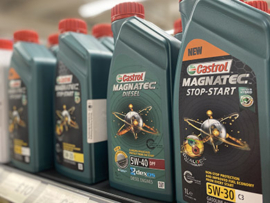
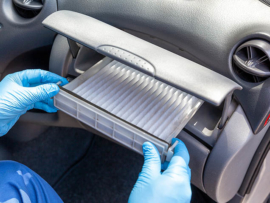
Leave A Comment